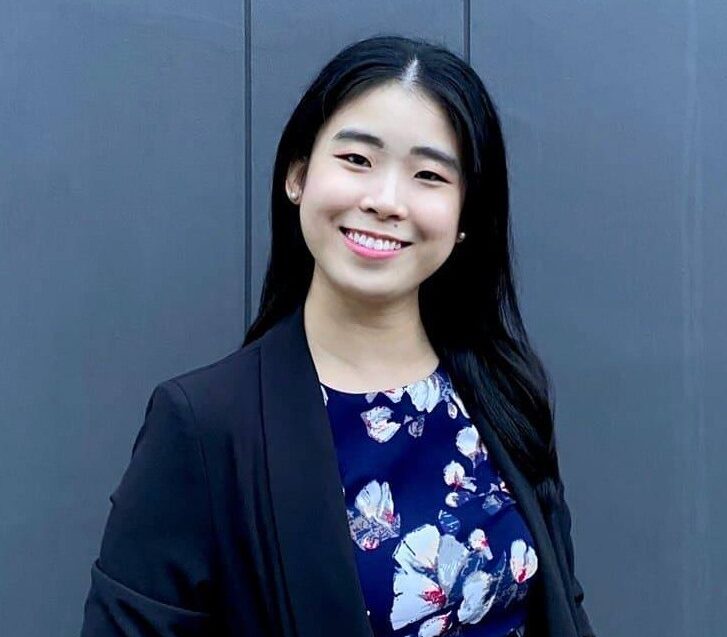Every year in the month of March, we often see corporations and organizations celebrate and commemorate the achievements of women through various campaigns and events, in conjunction with International Women’s Day.
But women-related topics should not only be discussed in March. Last September, TechNode Global put together a list of top emerging women-led startups in Southeast Asia, identifying and recognizing the top rising women in tech in the region.
This year, we talked to several venture capital (VC) firms to learn more about their perspectives on gender gap in the tech ecosystem. We sought their thoughts on gender lens investing and asked for their suggestions on how female tech entrepreneurs can improve further, closing the gender gap in the very much male-dominated tech startup ecosystem.
Generally, there has been more capital invested in female-led startups in recent years but women are still underrepresented in tech leadership, according to Boston Consulting Group. Women make up almost half (47 percent) of the US workforce, but they hold less than one-third (28 percent) of the leadership positions in tech.
Tech firms globally still suffer from a serious gender imbalance. A study from consultancy firm Accenture and NGO Girls Who Code showed the proportion of women working in the sector is now smaller than in 1984. The tech sector still faces significant challenges in its bid for gender equality with reports of sexism and toxic cultures in some firms, according to a report by AFP.
Zooming into Southeast Asia, it is worth noting that the region has started strong in gender representation in tech, surpassing even some mature Western markets like the UK and US. A study by the Boston Consulting Group and Singapore’s Infocomm Media Development Authority published in October 2020 revealed that women account for 32 percent of Southeast Asia’s tech sector workforce, exceeding the global average of 28 percent.
More VC firms and angel investors are wising up to the opportunity to invest in the region’s female founders. Some are even setting up female-focused funds to support and invest in female-led startups, besides putting more emphasis on diversity and inclusion. While not all VC firms are setting up female-focused funds, most VC firms would still hope to be seen as supportive of empowering women and actively promoting gender diversity, with some motivated by reputational pressure.
Vertex Ventures: Diversity reduces subconscious gender bias
According to Singapore-headquartered Vertex Ventures Southeast Asia and India, one of the most active VC firms in the region, promoting diversity will not only help to reduce subconscious gender bias but also leads to a more diverse range of deal flow, in addition to other benefits.
“We are aware of subconscious gender bias [within the sector] and one way to reduce that is by having female investment professionals on our team. We recognize that females and males communicate differently. Communicating in a convincing way to male investors could be a barrier that female founders face. We are proud that our investment team is diverse – with wide-ranging professional and personal backgrounds and also strong female representation (50 percent),” the firm’s Managing Partner Joo Hock Chua told TechNode Global.
“We don’t have an internal quota and did not set out to hire just to add more females; among the candidates, we decide on the best ones for the job. Having a diverse team also promotes diversity of thoughts. This hopefully leads to not only a more diverse range of deal flow and also a better ability to develop investment conviction around companies that may otherwise have been left behind due to biases or blind spots,” he said in an email interview.
Chua also shared some thoughts on gender lens investing.
“Since 1988, we have been set up as a sector agnostic and gender-neutral financial VC fund. It has allowed us to examine every deal with the same lens and criteria and invest in the best-in-class investment opportunities. At the very least, founders must have a strong background, an ambitious vision, a high potential to execute, and be able to communicate well,” he said. “We don’t set internal investment benchmarks for gender diversity. We think it is also critical for the capable female entrepreneurs whom we fund [to know] that we invested in them not because we are trying to meet a specific quota, but because they are as good as their male counterparts.”
With the right support, women can be strong leaders without neglecting their other roles as wives and others, he said.

To date, Vertex Ventures Southeast Asia and India has invested into 18 female founders, out of nearly 70 portfolio companies. Over the past five years, Chua said Vertex Ventures has led at least 11 deals involving female entrepreneurs and the firm believes this is the highest among Southeast Asia VC firms.
“Over our past 4 funds, we have invested 18, including Grab, Patsnap, Parentsinc, Socash, and many more. To inspire more female entrepreneurs, we have started featuring the struggles and inspirational transformative journey that our female founders have gone through in our Vertex Female Founder Series since February 2022,” he said. “We will also be creating video content with our female founders to help them increase their online media exposure.”
Beyond female entrepreneurs, the VC firm, which has $1 billion assets under management (AUM), also requires its portfolio companies to report the percentage of the workforce which is female in their business and remind them to value gender diversity.
“We didn’t specifically invest due to the gender of the founders. To us, the vision, working attitude, and potential to succeed are much more important factors than gender,” Chua explained.
He opined that it is great that funds are considering gender-lens investing and bridging the gap in diversity. But still, much needs to be done to increase the number of female founders, he said.
“We wouldn’t rule out setting up investment funds specifically for female entrepreneurs/ female-led startups in the future,” he said.
“Vertex Ventures Southeast Asia and India isn’t an impact fund but we stand behind a few United Nations Sustainable Development Goals, such as gender equality. We have been working closely with Singapore-based and regional partners such as the Singapore Business Federation’s SG-Women Entrepreneurs Network to provide relevant support for female entrepreneurs, such as sharing investment tips through panel speaking opportunities and mentoring programs. Going forward, we are looking to partner with more organizations to support more female entrepreneurs across Southeast Asia and India region,” Chua shared.
Gobi Partners: Gender gap an untapped opportunity
Another VC firm Gobi Partners, which has partnered with Indonesia-based VC firm Ozora Yatrapaktaja to launch a $10 million seed fund for women start-ups in Indonesia in April, noticed the impact of the pandemic on women and decided to step up its effort to support women tech entrepreneurs.
“We have seen how women everywhere have been adversely and disproportionately impacted by the pandemic, whether having lost their livelihoods because of retrenchment or having to step away from work to look after their families,” the Kuala Lumpur and Hong Kong-headquartered VC firm Partner Soo Wei Shaw told TechNode Global. “Seeing the urgency to address the issue, our decision to debut our women-centric fund with a focus on emerging cities outside of Jakarta, Ratu Nusa, is in line with our long-held values of building up the underserved ecosystem for entrepreneurs and promoting women’s economic empowerment.”
Through this fund, the firm believes that gender lens investing can increase women’s economic participation, promote women leaders, drive financial inclusion, and substantially improve the lives of women, girls, and their communities, she said.

According to the World Bank, increasing gender equality in economic participation in Indonesia could add $135 billion annually to Indonesia’s GDP by 2025.
“We see this gap as an untapped opportunity where there are an estimated 20 to 30 million active female entrepreneurs in Indonesia who stand to benefit from a thriving startup ecosystem. 60 percent of the unicorns created last year in Indonesia, such as Xendit, Kopi Kenangan, and Ajaib, were co-founded by women and already half of all small businesses and a third of all medium-sized businesses are women-owned in Indonesia. This to us is a promising new landscape and a market opportunity that we cannot ignore,” Shaw, who is also the Chairperson for the Environmental, Social and Governance Committee, shared.
She also shared Gobi Partners’ view on the opportunities it sees in empowering female entrepreneurs. She also shared some of the supporting data the VC firm observed.
“Over the past 20 years, the core of Gobi’s investment philosophy has been to seek investments in startups and entrepreneurs with a knack for generating value by identifying untapped opportunities and catering to underserved markets and consumers. In recent years, one of those untapped reservoirs of value has come from empowering female entrepreneurs, an often-overlooked market,” Shaw said.
From a portfolio composition standpoint, while gender-diverse founding and executive teams make up 43 percent of Gobi ASEAN and Hong Kong’s AUM, startups with gender-diverse teams make up 59 percent of the total holding value – representing a compelling business case for investing in startups with women-founders and women in leadership positions, she added.
Shaw noted that Gobi-backed gender-diverse teams in ASEAN and Hong Kong have also outperformed their all-male counterparts through higher returns and the ability to raise up-rounds.
“Gender-diverse founding teams were able to achieve 94 percent higher average Gross multiple of invested capital (MOIC) than all-male founding teams. Diverse founding teams were 2 times more likely to raise up rounds than homogenous teams,” she shared.
Apart from the Ratu Nusa Fund, Shaw said Gobi Partners remains committed to its advocacy of gender diversity in the regional VC ecosystem and will continue to drive thought-leadership platforms such as the annual Asia Gender-Smart Investing Forum co-organized with UN Women.
“Through this forum, we hope to build awareness about the merits of investing in women in leadership and entrepreneurship, promote more investment into women-led businesses, increase the opportunity for women to have access to financing, encourage business and financial communities to become more gender-responsive, and expand mentoring mechanisms for women from across our networks, peers, and business leaders,” she said.
In addition, the VC firm continues to support various partnerships which include She Loves Tech (by hosting pitching competitions), CodeGirls (training and recruitment for girls in tech), Karandaaz (financial inclusivity for SMEs), and The Billion Dollar Fund (pledge and advocacy for female entrepreneurs).
Quest Ventures: More than 36 percent of portfolio companies led by female founders
While Quest Ventures does not rule out the possibility of setting up women-focused investment funds, the firm will only consider such a move if it makes sense for its LPs and the investment thesis.
“Investment funds specifically for female entrepreneurs or female-led startups are increasing, but you can also invest in them through a gender-neutral fund,” Quest Ventures Head of Environmental, Social & Governance Michelle Ng told TechNode Global. “For Quest Ventures, we do not rule out the possibility of setting up investment funds specifically for female entrepreneurs. Still, it must make sense for our LPs and the investment thesis.”
 According to her, Quest Ventures has always been supportive of female entrepreneurs.
According to her, Quest Ventures has always been supportive of female entrepreneurs.
“We are big on diversity and inclusion. More than 36 percent of Quest portfolio companies are led by female founders,” Ng added.
Its portfolio companies include 99.co, Carousell, Carro, Glife, Hepmil, Oddle, Shopback, VulcanPost, Xfers, and Yummy Corporation, among others.
“Quest Ventures will continue supporting and investing in female entrepreneurs. It would be through the ecosystems that we have built and funding support. We have also ensured that our team is diverse, for example, we promoted two female investors earlier in the year. This will help us identify more opportunities for female entrepreneurs and female-oriented solutions,” she added.
Suggestions for women tech entrepreneurs & founders
Promoting and supporting women in tech is easier to be said than done. VCs, investors and female founders do have their roles to play. There needs to be a concerted, collective effort to close the gender gap. Here are some of the suggestions from VC firms.
Vertex Ventures’ Chua shared some suggestions for women tech entrepreneurs and founders.
1. Ask for enough funds
“Studies have shown that women entrepreneurs ask for less when raising. We would encourage women entrepreneurs to be aware of this and speak up for the funds they truly need,” he noticed.
2. Pitch effectively, using ‘promotion’ kind of answers
“We came across this interesting study: Even if the investors, in general, do approach entrepreneurs from both genders, women get asked a different set of questions versus men by investors,” Chua said. He noted that women tend to be asked more “prevention” than “promotion” questions, compared to men.
“Prevention” questions focus on “what if things go wrong?”, while “promotion” questions tend to focus on “what if things go well?”. This difference in questioning, due to gender bias, appears to have substantial funding outcomes for startups globally, he said.
According to the study, entrepreneurs who were asked promotion questions actually received twice as much funding as those who were asked prevention questions.
According to the study, if entrepreneurs respond to “prevention” questions with “promotion” kind of answers, they may be able to raise more funds. Psychologically, investors respond better to the latter and if women can be coached to pitch their answers in a more positive, “promotion” kind of way, they stand a better chance of being invested, he shared.
3. Pitch to female investors on the investor team
Females and males communicate differently and this is one barrier female founders face, communicating in a convincing way to male investors, he noted.
“Having a more diverse profile within the investor community will help to minimize some of these biases and blind spots. It helps to have females on the investor side of the table. A female investor may have different criteria compared to male counterparts, even on the same fund, and opinion of what “representing oneself” well means. That is why at Vertex Ventures Southeast and India fund, we are glad that 50 percent of our team is female,” he said.
Gobi’s Shaw, on the other hand, reminded women entrepreneurs of the importance of having a strong and supportive network.
“For women entrepreneurs, we advise you to always invest time in building a strong and supportive network of mentors and peers that can help nurture your business and build a diverse team that shares your vision,” she said.
Quest Ventures’ Ng’s suggestions to women tech entrepreneurs are straightforward and simple: “Take risks and be confident.”
“Female entrepreneurs should be confident and take risks, even if they are playing in a field dominated by the opposite gender,” she added.

